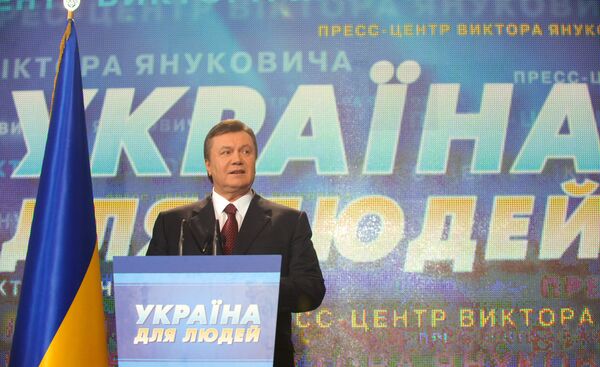Viktor Yanukovych will go to Brussels, the headquarters of the European Union, for his first trip as Ukrainian president, the Kommersant-Ukraine reported on Tuesday, citing EU sources.
Yanukovych, who beat Prime Minister Yulia Tymoshenko in a runoff on February 7, is to be inaugurated on Thursday.
"The agreed date of the visit is March 1. At present it is agreed that in Brussels there will be meetings with EU President Herman van Rompuy, European Commission President Jose Manuel Barroso and the president of the European Parliament, Jerzy Buzek," Kommersant-Ukraine quoted an EU source as saying.
Officially, the visit will be announced only after the inauguration, but the paper said all the officials had informally agreed to meetings with the new Ukrainian president.
In his congratulatory message to Yanukovych on February 11, Rompuy invited the president-elect to Brussels "at the earliest opportunity."
Yanukovych is expected to visit Moscow sometime in the first 10 days of March, but that trip will take place after he goes to Brussels. Diplomatic sources told the paper that the exact date depended on Yanukovych's success in gathering together enough votes in the Ukrainian parliament to appoint a prime minister.
"Obviously, the date will depend on the coalition process - it is to Yanukovych's advantage to go to Moscow after the approval of a new prime minister," Kommersant quoted one of its sources as saying.
"We should not look for underlying political motives in the speed and order of the visits. The EU and Russia are equally important avenues for Ukraine," said Mikhail Pashkov, director of international programs at the Razumkov Center think tank in Kiev.
"Much more important are the results of the foreign trips. Although visits in the first days after the inauguration are unlikely to see the signing of any documents, they are needed for the development of contacts," he was quoted as saying by the newspaper.
Yanukovych, the Kremlin's choice in the 2004 elections won by current President Viktor Yushchenko, is seen as being broadly pro-Russian, with his support strongest in the predominantly Russian-speaking areas of eastern Ukraine, but experts say he will seek to steer a course between Moscow and Brussels, trying to have the best of both worlds.
KIEV, February 23 (RIA Novosti)


